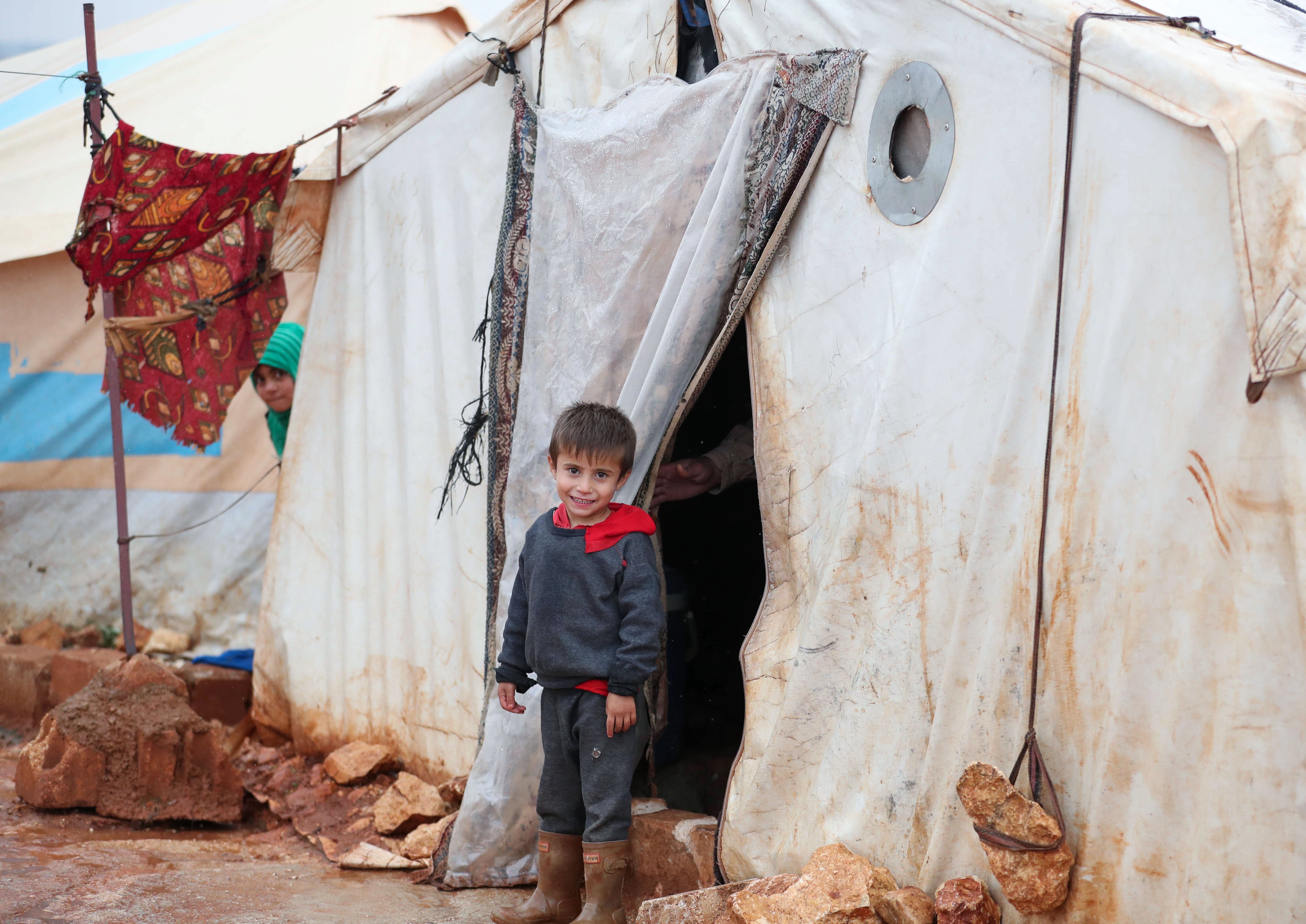You’d need to have a heart of stone not to be moved by the stories of refugees
Refugees Welcome: In our disconnected world, shared stories matter. They create a bridge, an opening for a different path away from violence


Your support helps us to tell the story
From reproductive rights to climate change to Big Tech, The Independent is on the ground when the story is developing. Whether it's investigating the financials of Elon Musk's pro-Trump PAC or producing our latest documentary, 'The A Word', which shines a light on the American women fighting for reproductive rights, we know how important it is to parse out the facts from the messaging.
At such a critical moment in US history, we need reporters on the ground. Your donation allows us to keep sending journalists to speak to both sides of the story.
The Independent is trusted by Americans across the entire political spectrum. And unlike many other quality news outlets, we choose not to lock Americans out of our reporting and analysis with paywalls. We believe quality journalism should be available to everyone, paid for by those who can afford it.
Your support makes all the difference.In early 2016, at the height of the refugee crisis in Europe, I travelled to Greece to set up Amna, an organisation which provides psychosocial care for people displaced by conflict.
Our work began in a small village on the Greek-Macedonian border, where 15,000 refugees had been stranded by the recent EU/Turkey deal. The camp looked as if it had sprouted overnight. Children and families were stuck, with nowhere to go. There were no facilities. People burned garbage to keep warm and every small task, from having a shower to making a meal, was an ordeal for the people who had ended up there.
Our aim was to set up a safe space. We weren’t offering anything other than a listening ear. We set up a tent and outside we put a simple invitation in several languages: “You are welcome to come in and talk to us.”
On the first day, I held my breath. I wasn’t sure if anyone would come in when they had so much else to deal with. But to my surprise they did.
First it was a few men, then children, and then whole families. People came from morning to dusk, sitting in a circle and talking – sharing intimate parts of their lives with us and with the group. There were stories of loss and nightmarish violence, and there were recollections of courage and of the extraordinary human capacity to endure the worst of things and still come out capable of joy and compassion.
Day after day, people came to share the reasons they had left their homes, the moment it had all become untenable. Sometimes it was the threat of violence, and the fear of losing someone you love. Sometimes it was because that had already happened. But it was almost never a calculated decision. People had been caught up in situations where ordinary life was made impossible.
As they talked, in the simple act of witnessing another human being’s pain, something would shift, and we would all feel a little lighter. Suffering, though acute, was shared and validated and cared for in our little community.
In the evenings, I would pack up and go back to my hotel room and switch on the news and a very different story about the same people would be on display.
The news channels played stories that made people afraid of the new arrivals. Politicians talked about swarms of immigrants invading Europe, of a conspiracy to displace European culture. There were debates about real refugees and economic migrants – did they really have no choice was a question that was asked over and over again.
Very little that I saw on the news reflected what I had witnessed in my day at the camp on the Greek border. There were no stories about why the conflicts that resulted in people losing their homes were happening in the first place – no mention of the war on terror and the 40 million people that it had displaced. No mention of the drones that buzzed over villages, keeping people in a constant state of fear. There was nothing to explain how years of relentless violence impacted an individual or a family. There was no discussion about how violence humiliates and diminishes whole communities. Nothing about the way children remember violence in their bodies.
It frightened me to see how distant and disconnected the reality of the refugees that I worked with was from the communities where they were seeking sanctuary. There were no shared stories, and no shared understanding of what was happening.
Yet I remembered, drawing on my own experience of displacement, that most people, when confronted with the reality of what had made my family leave our home, responded with understanding. When I felt safe enough to share my story, I saw the difference it made in people’s perceptions. When I told them why we had left Afghanistan, they understood the reasons my parents had made the choice to take their five children on a four-year journey to find safety.
What if people could connect with refugees as ordinary human beings caught up in circumstances outside of their control? What would happen if refugees could share their stories in their own way to bridge this gulf between how people see them and the reality of their situation? Could witnessing and honouring another person’s suffering help to lessen the pain, as it did in our groups?
Two years ago, we set out to work on a storytelling platform that enables refugees to tell their stories on their own terms. We wanted to create something that combined art and authentic storytelling in a way that empowered the storyteller and engaged those wishing to understand.
To keep up to speed with all the latest opinions and comment, sign up to our free weekly Voices Dispatches newsletter by clicking here
The result is Sada – meaning voice in Farsi – an invitation to step into our world and our lived experience. I am privileged and honoured to launch the platform and share one of the stories on it – the story of Yasser, a Syrian man whose courage got his family to safety in Turkey. The invitation here is to connect with Yasser and understand his choices.
In our disconnected world, shared stories matter. They create a bridge, an opening for a different path away from violence. They can be a step towards understanding, compassion and ultimately a recognition that we are all interconnected.
As the conflict in Ukraine began, I travelled to Poland to set up safe spaces for refugees coming out of Ukraine and could see immediately how that connection with another European has created a far more compassionate and more humane response than what I saw in 2016 in Greece.
Could sharing and connecting through story stretch our compassion beyond our identities, and help us connect to all humans as one community? Sada is our offering to the world, a way to sit in our little tent and listen and witness and, hopefully, understand.
Zarlasht Halaimzai is the founder and CEO of Amna, formerly known as Refugee Trauma, the refugee healing network supporting displaced people's mental health in a trauma-informed way
Join our commenting forum
Join thought-provoking conversations, follow other Independent readers and see their replies
Comments